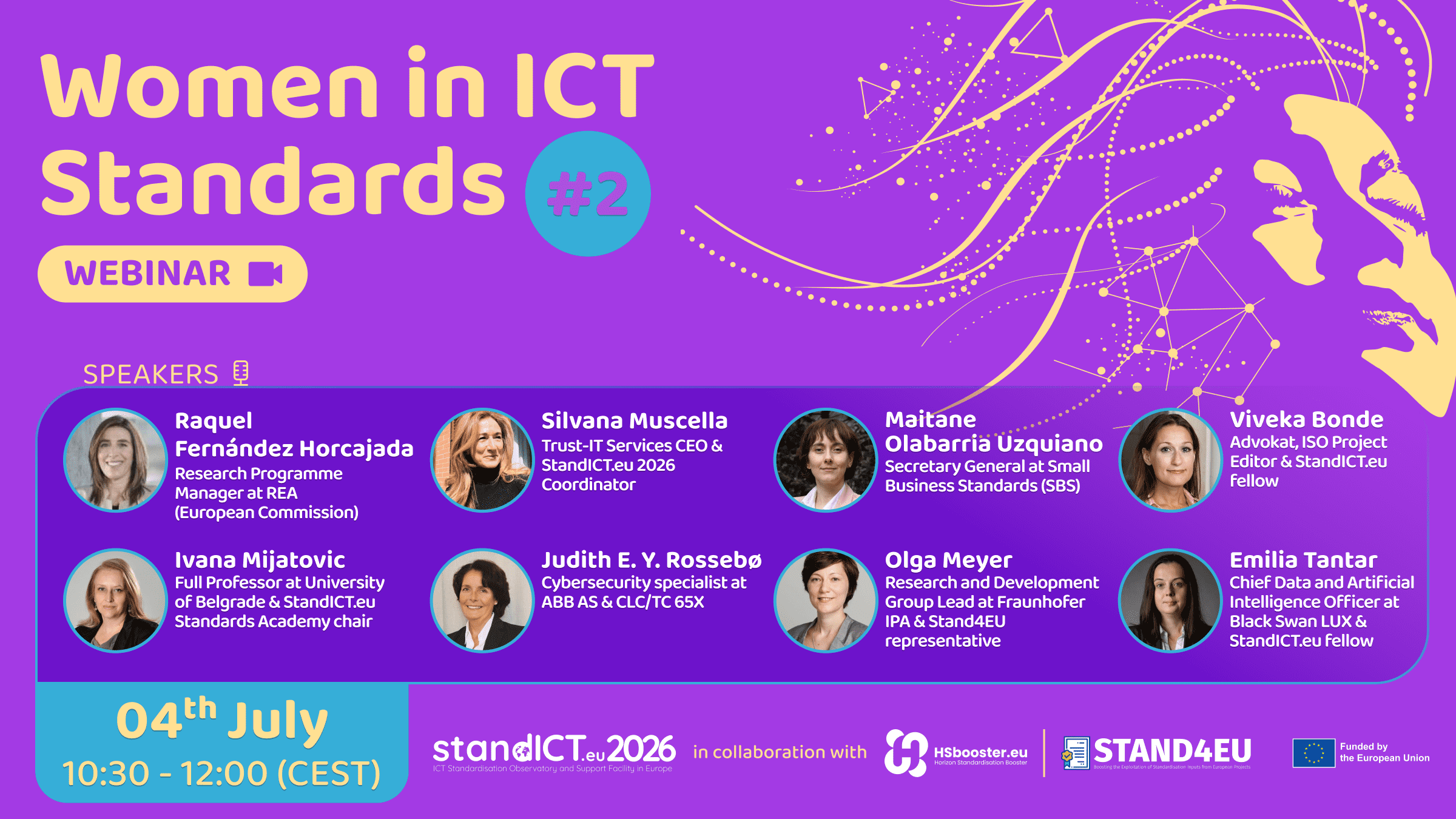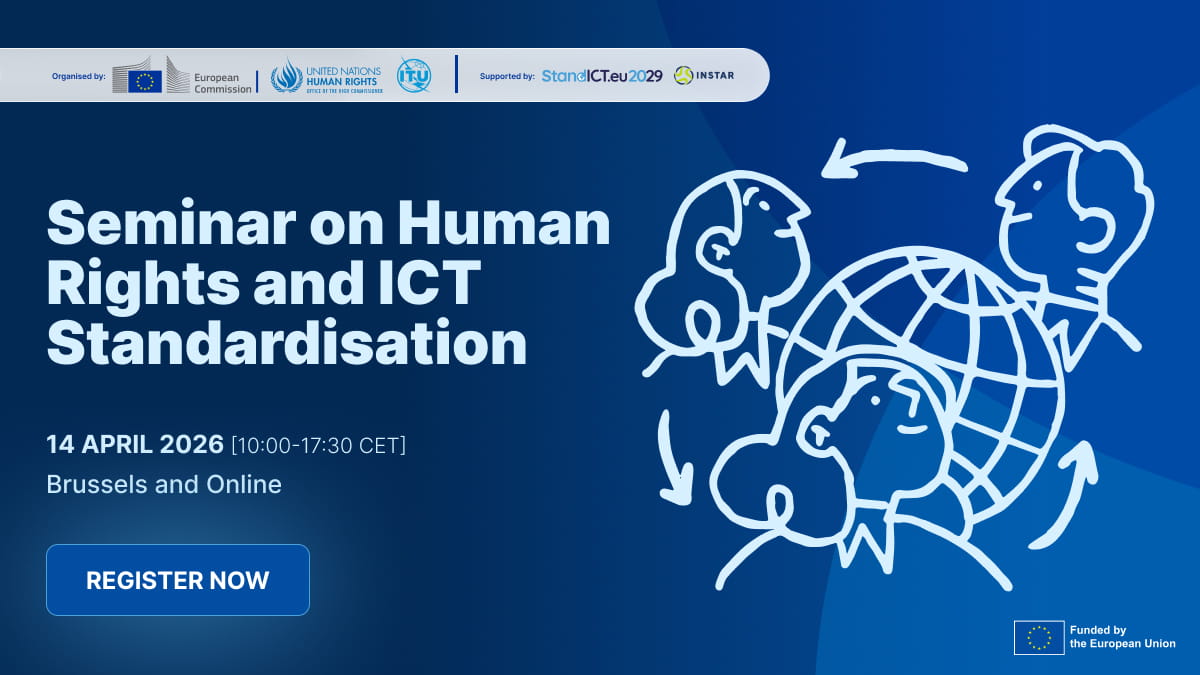Read time: 3 mins

Objectives
The objective of this webinar is to highlight the gender gap in ICT standardisation and discuss the gender dimension in standards. The webinar aims to:
- Discuss the current status of women's participation and contribution to Standards & Technical committees and activities in the ICT domain.
- Highlight the achievements and current activities of various European and International Standards Developing Organisations in promoting diversity, equity and inclusion in the field.
- Discuss the role of women in the development of standards in the respective ICT technological domains.
- Encourage more women to be active in the field of ICT Standardisation.
Target Audience
The target audience for this webinar includes ICT Specialists and Professionals under the main Digital Single Market & Digital Europe domains, Standard Developing Organisations' representatives, Members of Research Institutes working in ICT Standard Development, Representative of National Standards Associations, general audience and civil society organisations involved in the promotion of women in STEM disciplines and education.
Speakers
Esteemed representatives from various European and International Standards Developing Organisations will be invited to speak at the webinar. The speakers have been selected based on their expertise and experience in promoting diversity, equity and inclusion in the field of ICT Standardisation, as well as their contributions to the development of standards in the respective ICT technological domains.
- Silvana Muscella - Trust-IT Services CEO & StandICT.eu 2026 Coordinator
- Raquel Fernández Horcajada - Research Programme Manager at REA (European Commission)
- Maitane Olabarria Uzquiano - Secretary General at Small Business Standards (SBS)
- Viveka Bonde - Advokat, ISO Project Editor & StandICT.eu fellow
- Ivana Mijatovic - Full Professor at the University of Belgrade & StandICT.eu Standards Academy chair
- Judith E. Y. Rossebø - Cybersecurity specialist at ABB AS & CLC/TC 65X
- Olga Meyer - Research and Development Group Lead at Fraunhofer IPA & Stand4EU representative
- Emilia Tantar - Chief Data and Artificial Intelligence Officer at Black Swan LUX & StanICT.eu fellow
Background
The link between technology and gender equality is growing stronger every year and is reflected in the Sustainable Development Goals 5 on gender equality and the empowerment of women, which includes a specific target on how to leverage technology and ICT assets to fully achieve women’s empowerment. However, despite the progress made in this area, there is still a significant gender gap in ICT Standardisation, which affects the diversity, equity and inclusion in the field.
ICT Standardisation is extremely important as it has a cross-cutting relevance that extends beyond the ICT sector. Many vertical domains, such as healthcare, transportation, energy, and finance, rely on ICT standards to develop and operate their products and services. For example, the use of common data exchange standards in healthcare can improve patient safety and reduce medical errors, while interoperability standards in transportation can enhance safety and reduce congestion on roads (browse the StandICT.eu EU Observatory for ICT Standardisation and get a glimpse).
Furthermore, the impact of ICT standards on different sectors is not always apparent, and sometimes they are indirectly related. For instance, the use of standards for data security and privacy can impact e-commerce, online banking, and digital identity management. Therefore, ensuring the participation of diverse stakeholders in the development of ICT standards is crucial to ensuring that the standards are gender inclusive and address the needs of different sectors.
Duration
The duration of the webinar will be approximately 90 minutes, including Q&A sessions.
Co-organisers
StandICT.eu; HSbooster.eu, Stand4EU.
